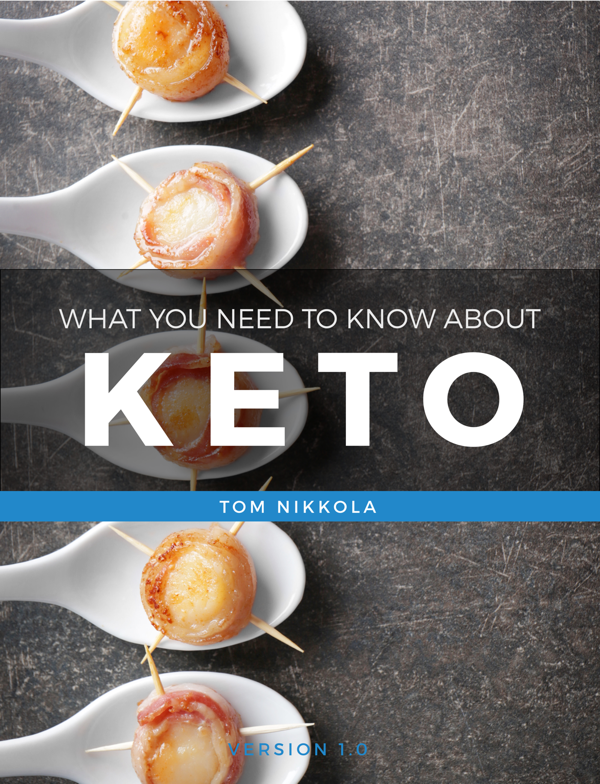
My parents got divorced when I was 3 years old and I turned to food for comfort
By the time I was 6 years old I was in Weight Watchers
I was still chubby in middle school
By the time I graduated from college I was up to 240 pounds
After getting my cap and gown I decided that I was ready to start taking care of myself
I started feeling more confident and wanted adventure, so I packed my bags and moved to California and became a successful personal trainer
I was active and fit and into saving the world by eating plants, mainly tofu at every meal
I was 150 pounds at 5'8 with very low body fat
I ran two half marathons that year
I was proud of myself for working so hard
I was convinced that beating myself to a pulp with workouts and calorie counting was the only way I could stay thin and in shape.
All of a sudden I started to experience extreme fatigue for the first time in my life
All I could think about was sleeping
I needed a pot of coffee to get going in the
I would manage to make it through my morning personal training sessions but then I would fall into the bed in the afternoons.
I needed caffeine later in the day to rally enough stamina to make it through my evening clients
I was having constipation and severe bloating for the first time in my life. And a dramatic weight gain.
This change was unusual because I had maintained my weight loss after college for nearly 10 years.
I went to my doctor to ask about my low energy, weight gain
The doctor was hesitant to do the tests but when the tests came back, my TSH was normal. However, I had a very high level of thyroid antibodies.
My TPO was over 600 and the normal range was under 30.
I didn't know what to make of it at first, but my doctor suggested I see someone more specialized
I have spent the last few years healing after Hashimoto's. My TPO antibodies have gone down from over 600 to 100.
My energy is back and I don't even think about napping
I am able to exercise appropriately without feeling run down
I am not quite as thin as I was when I was doing a low-fat low-calorie diet and running non-stop, but my weight has stabilized in a healthy place
How To Regain Your Health After Hashimoto's And Hypothyroidism
Hashimoto's thyroiditis is an autoimmune disease in which the body's immune system attacks the thyroid gland. Hashimoto's thyroiditis was the first ever recognized autoimmune disease.
1. Eat Nutrient Dense Foods
When I was on a low-fat low-calorie diet all I cared about was how many calories were in each bite but a lot of good that did me. I had no concept of nutrient density
I was always hungry during those years because I was starving for vitamins and minerals
Many of the foods dieters tend to eat, block nutrients from being absorbed such as whole grain bread, beans
These foods also create inflammation in the digestive tract.
Traditionally grains were prepared by soaking, sprouting and fermenting but that has fallen out of favor in our fast-paced culture
When there is inflammation in the digestive system, undigested proteins leak into the bloodstream creating a heightened immune reaction that often exacerbates thyroid issues.
It is important to focus on eating the most nutrient dense foods possible for deep down satisfaction.
A partial list of would include:
- homemade bone broth
- grass fed meats
- pastured meats
- wild game
- pastured organ meats
- natural fats such as coconut oil
- grass fed butter/ghee
- full-fat grass fed dairy
- mineral-rich sea salt
- wild fish
More about these super foods here.
2. Balance Blood Sugar
Many women are taught to eat a whole grain bagel or cereal for breakfast with skim milk along with some fruit or juice in order to be thin
It might make you thin but it also makes you starving by 10 am and searching for a snack
The same thing happens in the afternoon when that healthy whole grain turkey sandwich and diet yogurt leaves you in a lurch
Does a 3 pm run for Frappuccinos or fro-yo sound familiar?
This chronic roller coaster of blood sugar highs and lows can activate stress hormones that are actually catabolic to our tissues including the gut lining, lungs,
When these protective barriers become worn down, it over activates the immune system creating chaos where the body gets confused and attacks itself as is the case with Hashimoto's or basically any autoimmune condition.
The easiest way to balance blood sugar is to eliminate processed carbohydrates and sugar, plan meals around protein and healthy fats then load up your plate with vegetables.
3. Eat Like Your Ancestors
The foods that have become the cornerstone of the Western diet such as wheat (especially gluten), corn and soy (even beans/legumes) are pretty new on the scene
Many experts believe that we have not yet adapted to these foods, especially in the quantities they are being consumed.
Dr. Datis Kharrazian recommends a Paleo-type diet in his epic thyroid bible: Why Do I Still Have Thyroid Symptoms When My Lab Tests are Normal?
The rates of chronic disease just keep going up the more big agriculture tells us to eat these common crops.
When choosing your diet, think about eating the least amount of processed foods possible.
I highly recommend creating your nutrition plan by incorporating principles from a lower carbohydrate Paleo diet and with many of the nourishing Weston A. Price traditions.
4. Supplement Right
A nutrient-dense, lower-carb, Paleo diet can go a long way in restoring health and improving thyroid function. But when digestion is impaired it may not be enough.
Some key supplements to think about with Hashimoto's are zinc and selenium, nutrients that help produce thyroid hormone
Magnesium is extremely important for proper thyroid function
Iodine is very controversial but it is good to choose food sources higher in iodine such as wild salmon, seaweed and dulse
Most people with thyroid problems are very low in vitamin D. Get your level checked and supplement if low
Often people with Hashimoto's have a very poor balance of beneficial strains of bacteria in their colon. This dysbiosis in the gut, caused by too much sugar, antibiotics, and stress, can exacerbate autoimmunity
Taking a good quality probiotic is beneficial. Omega-3s are also very important. Try a few teaspoons of cod liver oil or other low temperature processed fish oil.
5. Spring Clean With Greens
The mineral sulfur is needed to stimulate detoxification pathways in the liver and to bind toxic metals
The best way to get more sulfur is to eat lots of greens and other colorful vegetables
Cruciferous vegetables such as broccoli and cauliflower are also high in vitamin C which is very thyroid supportive.
It is best to cook them to reduce goitrogens that can deplete iodine.
Autoimmune expert Dr. Terry Wahls recommends eating a mixture of 9 cups of raw and cooked vegetables daily, including greens, sulfur-containing, and colorful. She credits eating vegetables as a main part of overcoming being in a wheelchair from an autoimmune condition.
6. Nourish Your Adrenals
Most of the time when someone has Hashimoto's there has been a long-standing drain on the adrenals glands.
We all have a feedback loop called an HPA axis which is a communication pathway between the brain's hypothalamus, pituitary gland, and the adrenals
This information highway is a major part of the endocrine system that controls the reaction to stress and regulates many body processes, including digestion, immune function, mood and emotions, sexuality and energy usage
The best thing you can do for you adrenals is rest more and eat a traditional diet. You can read how Vanessa healed from adrenal fatigue here.
7. Say Yes To Less
When I was working with many female clients there was a common thread of putting themselves last
How can you take care of anyone else, when you don't have anything left to give?
It is imperative to healing that you start taking breaks and even pampering yourself.
When someone asks you to do something, take moment to consider if it is the best idea.
It is okay to say no and stand up for your own boundaries
It is okay to not be so busy
It is okay to just rest on the weekends and not be a social butterfly.
It is important to take time for self-care such as detox baths, meditation, walking, or restorative yoga
In extreme cases, some people may need to switch careers or get out of a stressful work environment
8. Live In The Moment
The only thing we have is this very moment but usually we are too worried about the next one to enjoy this one
Well, the next one is not guaranteed. So find some ways live in the now.
Worrying and obsessing about the future is a major stressor on all of us and one that takes practice to change.
Some ways that have helped me, include: making a gratitude list, meditating, and doing EFT.
9. Exercise Smart
Sometimes, the best exercise for someone with Hashimoto's may be none at all. Especially when first diagnosed.
When I first got sick I spent a lot of time doing easy slow walks because I needed to rejuvenate myself
Many times people with Hashimoto's gain weight and there is a tendency to want to exercise the flab away
I urge you to be patient with yourself
When your body is healed, the excess weight will come off in due course.
Once you feel strong enough, focus on appropriate weight training and HITT training in favor of chronic cardio
10. Work With An Integrative Practitioner
Since being diagnosed in 2010 I have worked with countless practitioners such as naturopaths, functional medicine doctors, chiropractors, acupuncturist, and conventional doctors
It is important to keep searching for help and answers
If one doctor won't do what you want then find another one
You are not at their mercy and you can fire them
It is important to ask for the right tests and be your own informed advocate.
Don't give away your power or just take their word for it.
Find a practitioner in your area here or here.
Recommended Reading
- Hashimoto's Thyroiditis: Lifestyle Interventions for Finding and Treating the Root Cause
- Why Do I Still Have Thyroid Symptoms? when My Lab Tests Are Normal
What You Need to Know About Keto Ebook
The keto diet has attracted many followers for good reason. It's an effective tool for blood sugar management and weight loss.
It also has proven benefits for various health concerns.
What You Need to Know About Keto is not another copycat keto ebook.
It's a real-world, practical review of the diet and an action plan, based on 20 years of observation, education, and experience.
Whether you're new to keto, or you're #ketoaf, this book has something for you.


